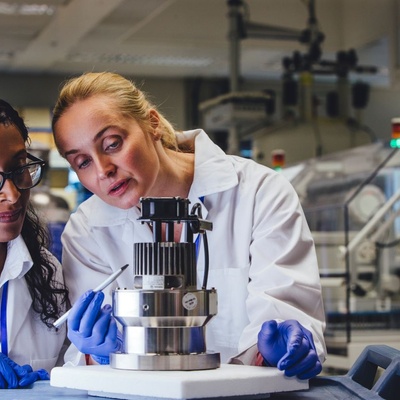In Australia, the life science sector continues to grow, being one of the largest industries in the southern hemisphere. The region leads the biotechnology sector, ranking within the global top 5 of biotechnology innovation for three consecutive years, with career opportunities expanding beyond traditional lab roles. From technical sales to regulatory affairs, students can explore a range of exciting paths to gain industry experience and support their life science careers. Approximately 264,000 people are employed in Australia’s life science sector, with nearly 70% holding an advanced diploma or higher qualification. If you’re working towards your qualification, here’s a list of strategies to help you gain valuable work experience to increase your chances of landing a job in the industry after graduation.
The Importance of Industry Experience
Gaining practical experience while studying is essential for several reasons:
- Hands-on skills development
- Networking opportunities
- Industry insights
- Competitive advantage in the job market
Research shows that students participating in work-integrated learning programs are more likely to secure full-time employment after graduation, but where do you start?
1. Don’t limit yourself to one career path
Many science students assume that laboratory work is their only career option, and while lab work is essential, there are a range of other roles that don’t require you to wear a lab coat. Positions in technical sales, document control, regulatory affairs, and FMCG operations are excellent entry points you might not have considered.
The more research you put into finding different industries and job types, the wider your options will be when it’s time to apply for jobs. At Evolve, we’ve seen first-hand how students with a science background can thrive in non-lab roles. Many of our recruiters hold science degrees but have chosen alternative career paths outside of the lab, proving that the skills you gain in science can be applied in all kinds of settings.
2. Use your networks
Landing your first role in the life sciences industry often comes down to who you know as much as what you know, so it’s important to use every available resource. Some great places to start include:
- SEEK and LinkedIn: Australia’s largest job boards are essential for tracking job postings and networking with industry professionals.
- University job boards: Often overlooked, these can be an excellent resource for internships and part-time roles.
- Industry networking events: Conferences, workshops, and webinars are good for meeting professionals and gaining insights into various sectors.
If you haven’t already, create a LinkedIn profile and connect with professionals in your field. Don’t be afraid to reach out to people working in companies where you’d like to work in the future; many professionals are happy to offer advice or even keep you in mind for future job openings.
Also, don’t overlook the professors and university staff you’ve built relationships with. They often have valuable industry connections that can help you secure internships or job interviews.
Here’s a tip: work with a recruitment agency. An agency like Evolve, which specialises in life sciences, can give you access to job openings that aren’t always visible on job boards. We work closely with leading companies in the sector, providing students access to internships, temporary positions, and full-time roles.
3. Find a balance between study and work
One of the biggest challenges students face is balancing full-time study with part-time work or internships. The most important takeaway is to find opportunities that fit within your schedule. When accepting an internship or placement, ensure you can manage the workload and complete shifts you’ve committed to without sacrificing your academic performance or causing burnout.
Prioritising your commitments will help you gain valuable work experience without overwhelming yourself. Plus, by successfully managing both study and work, you’ll show potential employers that you can handle multiple responsibilities, such as time management and organisational skills – which companies highly value.
4. Close skill gaps with hands-on experience
Even with a solid academic foundation, many students find that their education doesn’t fully prepare them for the practical demands of a job in the life sciences industry. Completing an internship or placement is the best way to bridge this gap.
While higher education teaches essential theories and techniques, industry experience gives you practical skills like:
- Prioritising workload
- Meeting deadlines
- Managing client and team relationships
- Understanding lab costs and operational targets
Internships allow you to develop a working knowledge of industry practices and help you build confidence in a professional setting. For example, a food science student who completes a HACCP course or an internship in a food testing lab will have a competitive edge when applying for industry roles.
5. Use your university’s resources
Many universities offer internship and industry placement programs, so be sure to take advantage of these opportunities. Additionally, attending job fairs, workshops related to your field, and events hosted by career services can improve your understanding of the industry. These events allow you to meet potential employers and offer insights into industry trends and expectations. Not only will you gain practical experience, but you’ll also get your foot in the door at leading companies in the field.
6. Be open to non-technical roles
Flexibility is vital when starting out; your first job doesn’t have to be your dream job. Don’t hesitate to apply for non-technical roles if they provide you with the relevant industry exposure. For example, working in production or operations could give you experience with GMP (Good Manufacturing Practices), which is highly sought after in many sectors.
Even if the role isn’t directly related to your field of study, any form of work experience is beneficial. Working in a professional environment – whether in a lab or an office – teaches you soft skills like communication, teamwork, and problem-solving, all of which will make you a more attractive candidate. You can diversify your skillset if you’re willing to step out of your comfort zone.
7. Apply, Apply, Apply
When it’s time to apply for jobs, cast a wide net. Don’t hold back or wait for the “perfect” job. The more applications you submit, the more likely you are to get interviews and, ultimately, job offers. You can always choose from your options later; the worst outcome is not having many opportunities to choose from. To increase your chances of landing the right opportunity, be sure to apply to as many jobs as you can find.
Additionally, graduates can gain work experience right after university by pursuing industry placements for hands-on experience, participating in research projects, and taking on volunteering opportunities. Actively seeking out these experiences can greatly enhance your chances of securing a job in your desired field.
Join the Evolve Program!
At Evolve, we’ve developed the Evolution Program, a unique opportunity for undergraduate students in their 2nd and 3rd year of university studying food science, microbiology, or chemistry. Through this program, you can gain practical experience working in industrial labs while still learning, giving you a significant advantage when applying for jobs post-graduation.
Contact us today to learn how our recruiters can help you launch your career in the life science industry.





